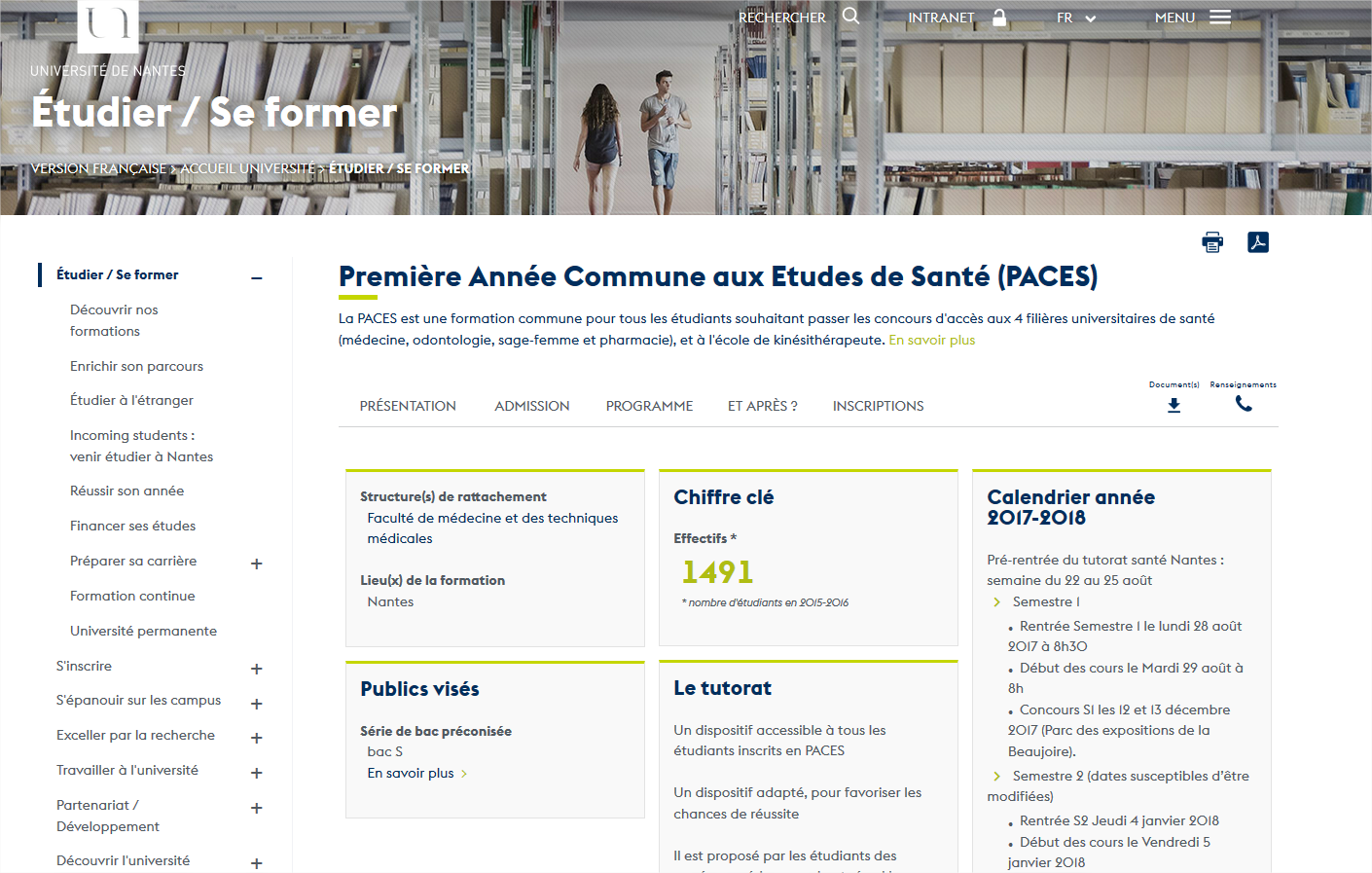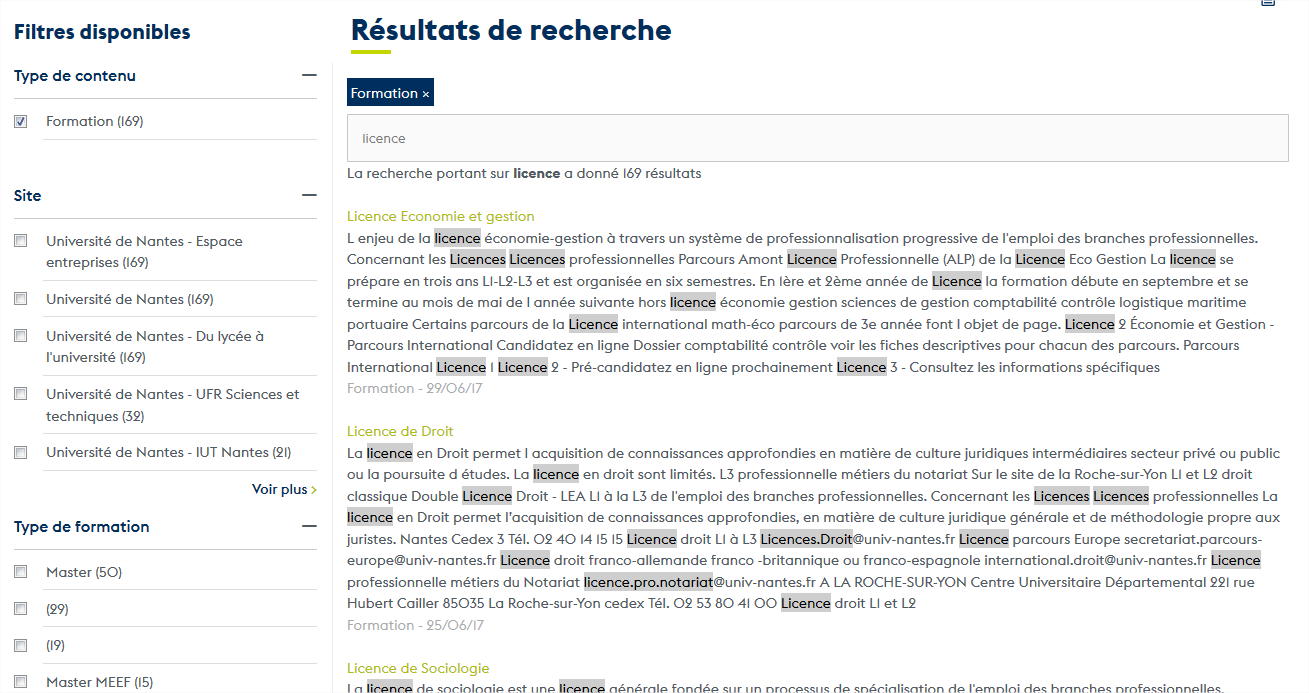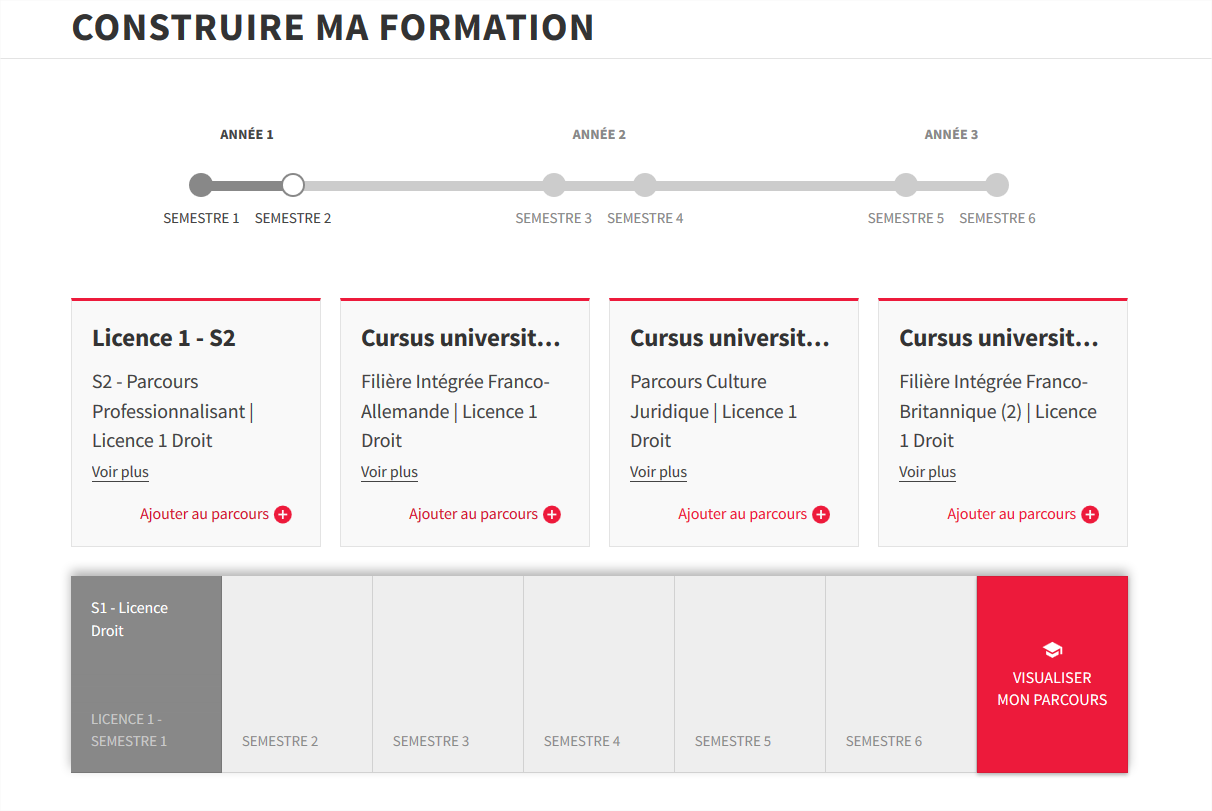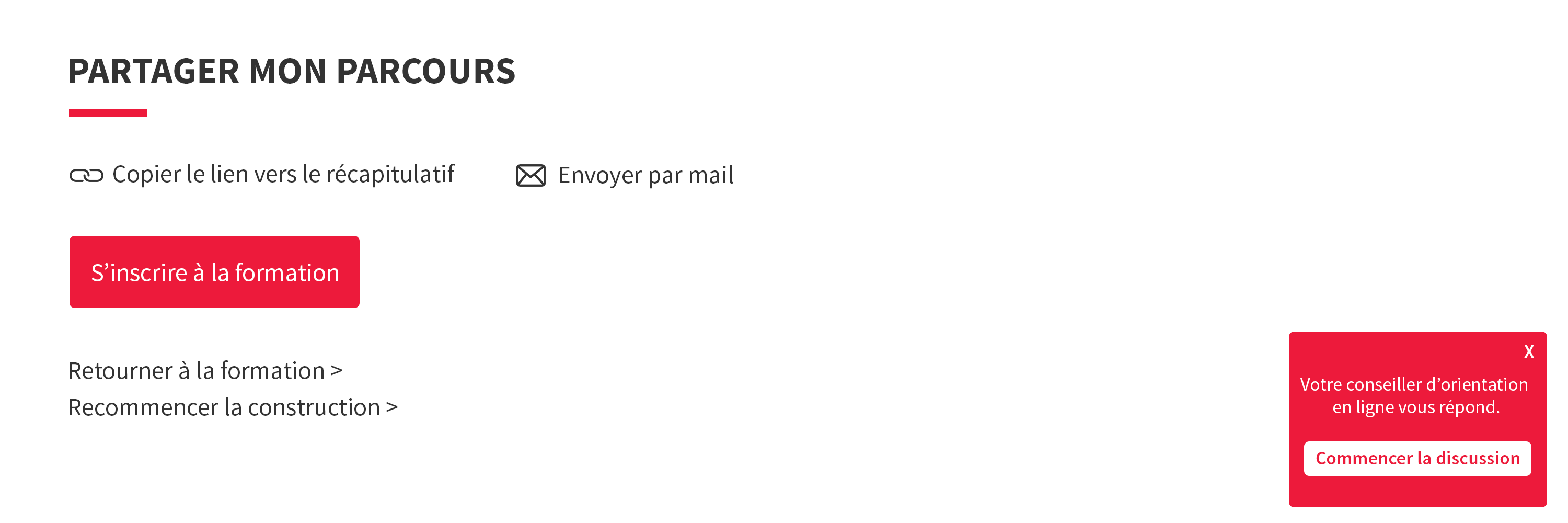University of Nantes The presentation of the educational offering at the heart of the digital university
For more than 50 years, the University of Nantes has provided education at the highest level. Its campus is a crossroads of knowledge. At the core of the University of Nantes’ digital strategy, the presentation of its course catalogue is a major challenge. This is why the university decided to design an innovative tool for presenting its courses, in collaboration with consultants from the Kosmos company. Two other schools, the Université Catholique de Lyon and the Institut Catholique de Paris, also participated in the design of this digital service.
The visibility of course offerings, a strategic challenge for the University
The overall design of this new extension comes from joint deliberation with several school users of K-Sup having formalised their issues and presented their desires for changes in the existing system. The result of this co-design has then been submitted to a call for comments from the whole K-Sup community. As a pilot project, the University of Nantes has been the first school to experiment with putting this new extension in place.
“ We have been working together for over 15 years. When Kosmos offered to co-design the new course offerings extension, we accepted right away. ”
Marc PÉRON, Director of Communications
This latest version responds to several strategic issues for universities: the promotion of its brand image, the visibility of its offer and the conversion of leads. Thus, new keys have been integrated into this new extension.
A new presentation of the courses which simplifies student browsing
The Course sheets have been completely re-thought to facilitate browsing by students and future-students. Innovative ergonomics and intuitive browsing allows all the information to be presented on the same page :
- The first area is dedicated to key information about the programme: differentiating elements, (rate of employability, rate of success, etc.), how the course progresses (rhythm, number of students, etc.), specific partnerships with particular external structures (foreign institutes, festivals, etc.)
- A fixed menu allows the user to browse rapidly from one topic to another.
- Each section of the file is presented as a summary. Buttons allowing the different topics of each programme to be displayed in more depth: presentation of the programme, admissions, programme details, continuing studies or career targeted, registration, etc.
« With the K-Sup educational offer, we communicate more effectively with our different targets, thanks to a clear and efficient display of our catalogue »
Anne-Christelle SUIRE, Manager of Online Communication at the University of Nantes

A new search engine, based on Elasticsearch technology, allows search results to be filtered according to professional criteria: level of diploma, career targeted, location of courses, discipline, etc. It is also possible to weight the search results to highlight certain educational programmes using the new plugin for prioritising the results.

A digital tool for the communication teams
A real communication and marketing tool, the course offerings natively integrate into “call-to-action” type buttons which encourage students or future students to perform an action on the website: download brochures, make contact with the school or to register online.

For more in-depth functionality, a feature allows the CRM of the school to synchronise with K-Sup. When a student enters their information on the University’s platform, they are automatically registered in the CRM, thus facilitating the administrative management of their requests.
Additional course suggestions can also be proposed in order to guide the student or the future student in the course choice.
Assisting the student in building their curriculum
Progressive specialisation is a key measure of the law of July 22, 2013. The goal of this measurement is to make each student able to manage their education. Thus, Universities have had to rethink the architecture of their courses to allow students to refine their options depending on the progress of their personal and professional project.
To respond to this major change, a new feature of curriculum construction is now offered by Kosmos. Each student or future student can simulate their choice of courses, semester-by-semester, to build their curriculum. This new feature is currently undergoing trials at the University of Nantes.

A summary page allows the student to have a complete programme of their curriculum, to share this simulation, or to send it by e-mail. This page also constitutes a point of entry to the University and can include a link to an online registration platform or a click-to-chat tool, putting the student in contact with an Educational Counsellor.

Several ideas for evolution have already been identified. Eventually, the student will be able to build their programme “backwards”, starting from a targeted profession and identifying the different possible paths which will allow them to reach it. He or she will also be able to construct their inter-disciplinary programme, for example at the level of second year University up to the Master’s level.
The goal, and the opportunity provided by this work, is to offer a real tool for helping the student to orient themselves.
Online registration
A new e-space for students at the University of Nantes
See the article
Digital university
The ULB on its way to the “Digital University”
See the article
User experience
Troyes Technical University: user experience at the heart of the digital university
See the article